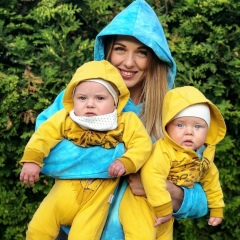Гигант американской автомобильной индустрии — компания General Motors попала в неловкую ситуацию, экспортируя из России свой новый автомобиль Chevrolet Nova на рынки Латинской Америки. Выяснилось, что No va по-испански означает "не может двигаться".
Парфюмерная компания Clairol поставляла свои сухие дезодоранты в Германию, используя cлоган Mist Stick ("туманный дезодорант"). Оказалось, что слово Mist ("туман") на немецком сленге означает "навоз".
Компания Colgate-Palmolive вывела на французский рынок свою новую зубную пасту Cue. Позже американцы узнали, что именно такое название носит популярный французский порножурнал.
А Pepsi дословно перевела на китайский язык свой главный рекламный девиз: "Живи с поколением "Пепси" (Come Alive With the Pepsi Generation), шокировав китайцев. Этот слоган в Поднебесной приобрел неожиданное звучание: "Пепси" заставит ваших предков подняться из могил".
В Китае в глупой ситуации оказалась и Coca-Cola: здесь произносят название этого напитка как "Кекукела", что означает "кусай воскового головастика". Компания была вынуждена перебрать 40 тыс. вариантов написания своей торговой марки, прежде чем было выбрано "Коку Коле", что по-китайски означает "счастье во рту".
Авиакомпания American Airlines установила в своих самолетах кожаные кресла и решила сообщить об этом мексиканским потребителям. На английском призыв звучал прекрасно: Fly in Leather ("Летай в коже!"), но в испанском варианте он читался так: "Летай голым!"
При рекламе пива Coors использовался слоган Turn It Loose! ("Стань свободным!"). Но из-за буквального перевода на испанский получилось "Страдай от поноса!".
Компания Frank Purdue, производящая курятину, в США использует слоган It takes a strong man to make a tender chicken (примерный перевод: "Чтобы приготовить нежного цыпленка, требуется сильный мужчина"). В переводе на испанский эта фраза приобрела несколько иной смысл: "Нужен сексуально возбужденный мужчина, чтобы курица стала нежной".
В США в неловкой ситуации оказался известный скандинавский производитель бытовой техники Electrolux: он вывел свои пылесосы на американский рынок со слоганом Nothing Sucks Like an Electrolux - "Никто не сосет так, как Electrolux".
Кстати, подобные курьезы случаются и с нашими брендами. В начале 90-х годов Агентство печати "Новости" переименовали в РИА "Новости", выяснилось, что РИА по-испански означает "смеется". Из-за этого вот уже более 10 лет агенство серьезные политические сообщения продает испанским коллегам за подписью "Новости смеются".
А на украине перестали рекламировать шоколад Виспа, ибо по украински это слово означает «Оспа».
Парфюмерная компания Clairol поставляла свои сухие дезодоранты в Германию, используя cлоган Mist Stick ("туманный дезодорант"). Оказалось, что слово Mist ("туман") на немецком сленге означает "навоз".
Компания Colgate-Palmolive вывела на французский рынок свою новую зубную пасту Cue. Позже американцы узнали, что именно такое название носит популярный французский порножурнал.
А Pepsi дословно перевела на китайский язык свой главный рекламный девиз: "Живи с поколением "Пепси" (Come Alive With the Pepsi Generation), шокировав китайцев. Этот слоган в Поднебесной приобрел неожиданное звучание: "Пепси" заставит ваших предков подняться из могил".
В Китае в глупой ситуации оказалась и Coca-Cola: здесь произносят название этого напитка как "Кекукела", что означает "кусай воскового головастика". Компания была вынуждена перебрать 40 тыс. вариантов написания своей торговой марки, прежде чем было выбрано "Коку Коле", что по-китайски означает "счастье во рту".
Авиакомпания American Airlines установила в своих самолетах кожаные кресла и решила сообщить об этом мексиканским потребителям. На английском призыв звучал прекрасно: Fly in Leather ("Летай в коже!"), но в испанском варианте он читался так: "Летай голым!"
При рекламе пива Coors использовался слоган Turn It Loose! ("Стань свободным!"). Но из-за буквального перевода на испанский получилось "Страдай от поноса!".
Компания Frank Purdue, производящая курятину, в США использует слоган It takes a strong man to make a tender chicken (примерный перевод: "Чтобы приготовить нежного цыпленка, требуется сильный мужчина"). В переводе на испанский эта фраза приобрела несколько иной смысл: "Нужен сексуально возбужденный мужчина, чтобы курица стала нежной".
В США в неловкой ситуации оказался известный скандинавский производитель бытовой техники Electrolux: он вывел свои пылесосы на американский рынок со слоганом Nothing Sucks Like an Electrolux - "Никто не сосет так, как Electrolux".
Кстати, подобные курьезы случаются и с нашими брендами. В начале 90-х годов Агентство печати "Новости" переименовали в РИА "Новости", выяснилось, что РИА по-испански означает "смеется". Из-за этого вот уже более 10 лет агенство серьезные политические сообщения продает испанским коллегам за подписью "Новости смеются".
А на украине перестали рекламировать шоколад Виспа, ибо по украински это слово означает «Оспа».
The giant of the American auto industry, General Motors, got into an awkward situation exporting its new Chevrolet Nova from Russia to the Latin American markets. It turned out that No va in Spanish means "cannot move".
The perfume company Clairol supplied its dry deodorants to Germany using the slogan Mist Stick ("misty deodorant"). It turned out that the word Mist ("fog") in German slang means "manure".
Colgate-Palmolive has launched its new Cue toothpaste on the French market. Later, the Americans learned that this is the name of the popular French porn magazine.
And Pepsi literally translated into Chinese its main advertising motto: "Come Alive With the Pepsi Generation, shocking the Chinese. This slogan in the Middle Kingdom acquired an unexpected sound:" Pepsi will make your ancestors rise from the graves. "
In China, Coca-Cola also found itself in a stupid situation: here they pronounce the name of this drink as "Kekukela", which means "bite a wax tadpole." The company was forced to go through 40,000 spellings of its brand before it was chosen "Cocu Kole", which means "happiness in the mouth" in Chinese.
American Airlines installed leather seats on their planes and decided to inform Mexican consumers about it. In English, the call sounded great: Fly in Leather ("Fly in the leather!"), But in Spanish it read like this: "Fly naked!"
Coors beer was advertised with the slogan Turn It Loose! ("Become free!"). But because of the literal translation into Spanish it turned out "Suffer from diarrhea!"
Frank Purdue, a chicken company in the United States, uses the slogan It takes a strong man to make a tender chicken (rough translation: "It takes a strong man to cook a tender chicken"). Translated into Spanish, this phrase acquired a slightly different meaning: "It takes a sexually excited man to make the chicken tender."
In the United States, the famous Scandinavian manufacturer of household appliances Electrolux found itself in an awkward situation: he brought his vacuum cleaners to the American market with the slogan Nothing Sucks Like an Electrolux - "Nobody sucks like Electrolux."
By the way, similar funny things happen with our brands. In the early 90s, the Novosti Press Agency was renamed into RIA Novosti, it turned out that RIA in Spanish means "laughs". Because of this, for more than 10 years the agency has been selling serious political messages to Spanish colleagues under the caption "News laughs".
And in Ukraine they stopped advertising Wispa chocolate, because in Ukrainian this word means "Smallpox".
The perfume company Clairol supplied its dry deodorants to Germany using the slogan Mist Stick ("misty deodorant"). It turned out that the word Mist ("fog") in German slang means "manure".
Colgate-Palmolive has launched its new Cue toothpaste on the French market. Later, the Americans learned that this is the name of the popular French porn magazine.
And Pepsi literally translated into Chinese its main advertising motto: "Come Alive With the Pepsi Generation, shocking the Chinese. This slogan in the Middle Kingdom acquired an unexpected sound:" Pepsi will make your ancestors rise from the graves. "
In China, Coca-Cola also found itself in a stupid situation: here they pronounce the name of this drink as "Kekukela", which means "bite a wax tadpole." The company was forced to go through 40,000 spellings of its brand before it was chosen "Cocu Kole", which means "happiness in the mouth" in Chinese.
American Airlines installed leather seats on their planes and decided to inform Mexican consumers about it. In English, the call sounded great: Fly in Leather ("Fly in the leather!"), But in Spanish it read like this: "Fly naked!"
Coors beer was advertised with the slogan Turn It Loose! ("Become free!"). But because of the literal translation into Spanish it turned out "Suffer from diarrhea!"
Frank Purdue, a chicken company in the United States, uses the slogan It takes a strong man to make a tender chicken (rough translation: "It takes a strong man to cook a tender chicken"). Translated into Spanish, this phrase acquired a slightly different meaning: "It takes a sexually excited man to make the chicken tender."
In the United States, the famous Scandinavian manufacturer of household appliances Electrolux found itself in an awkward situation: he brought his vacuum cleaners to the American market with the slogan Nothing Sucks Like an Electrolux - "Nobody sucks like Electrolux."
By the way, similar funny things happen with our brands. In the early 90s, the Novosti Press Agency was renamed into RIA Novosti, it turned out that RIA in Spanish means "laughs". Because of this, for more than 10 years the agency has been selling serious political messages to Spanish colleagues under the caption "News laughs".
And in Ukraine they stopped advertising Wispa chocolate, because in Ukrainian this word means "Smallpox".
У записи 3 лайков,
0 репостов.
0 репостов.
Эту запись оставил(а) на своей стене Мария Леншина
























